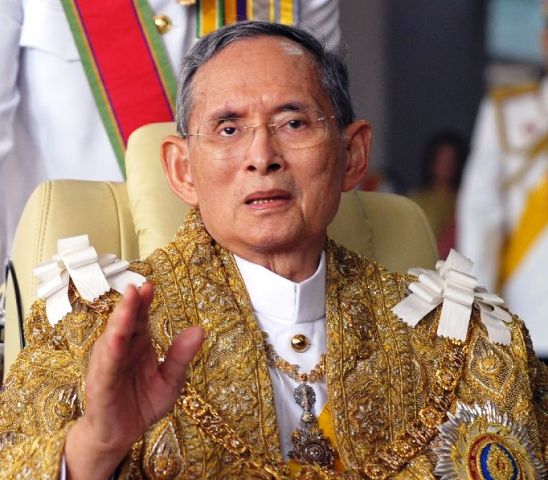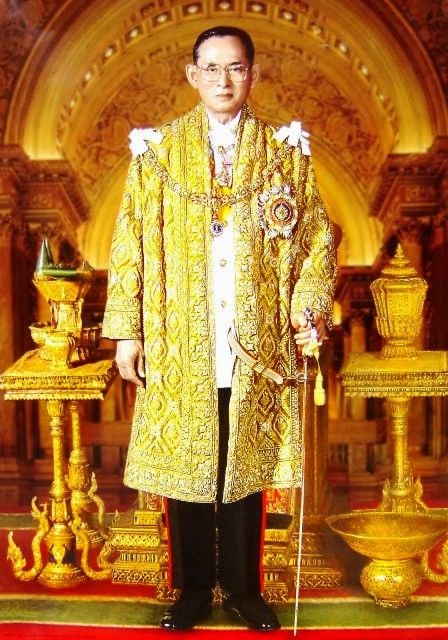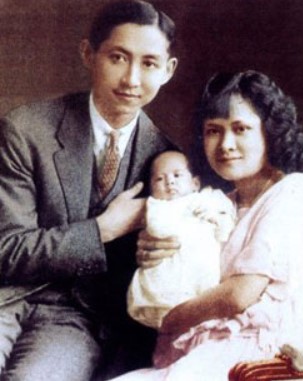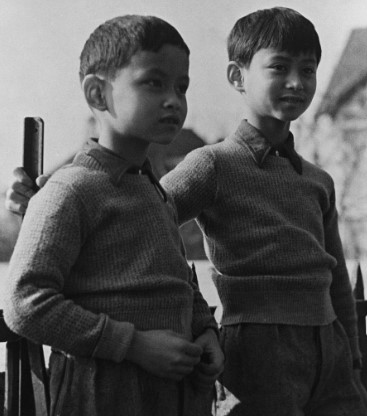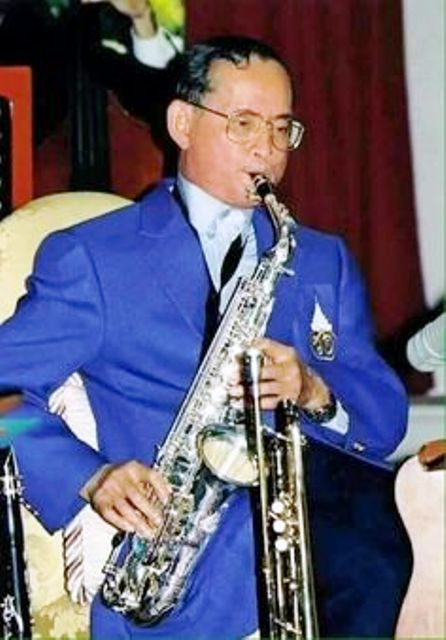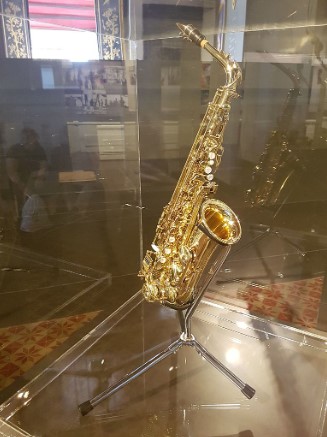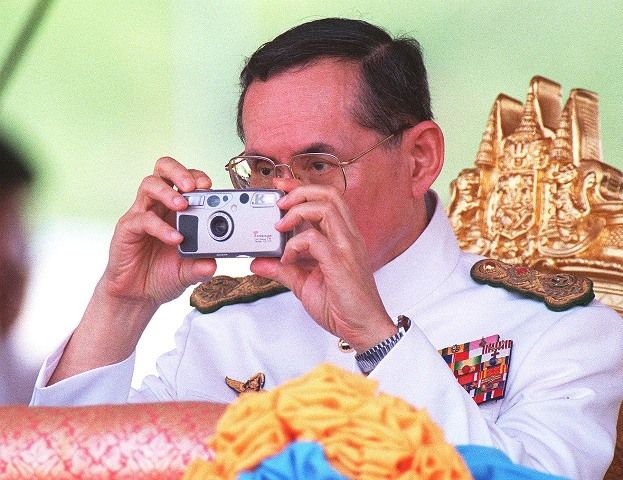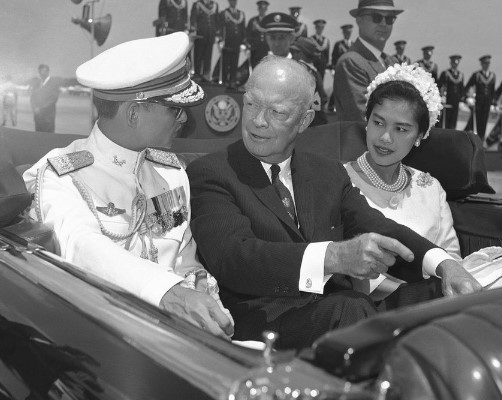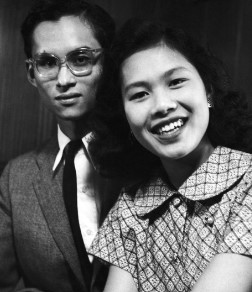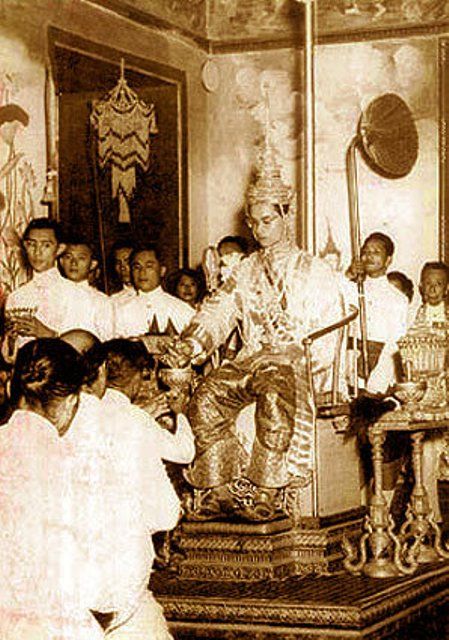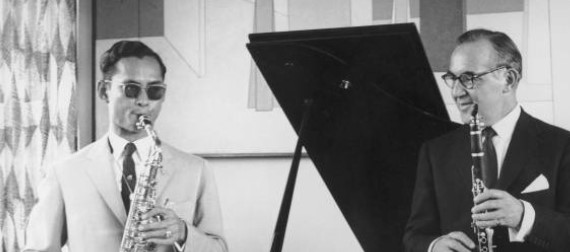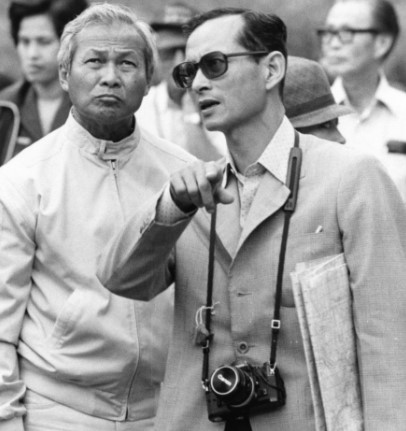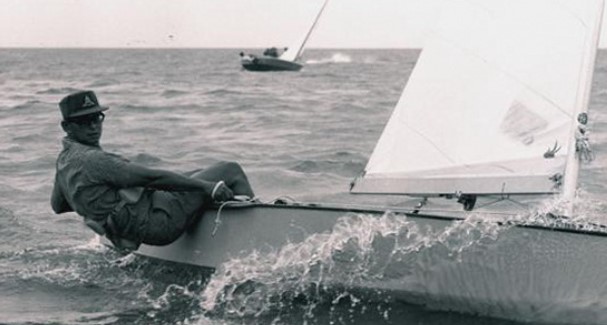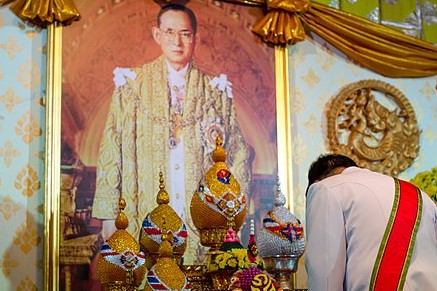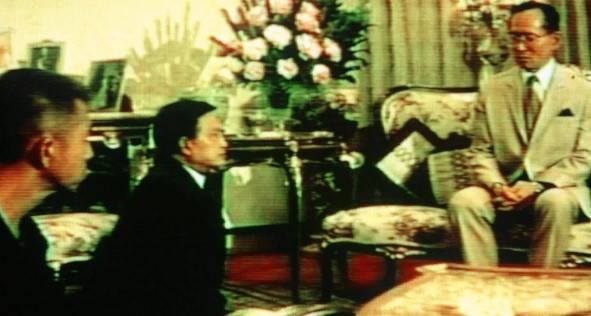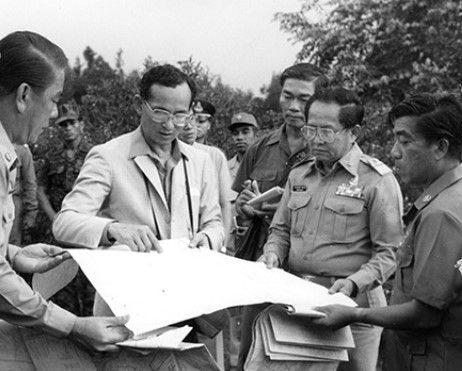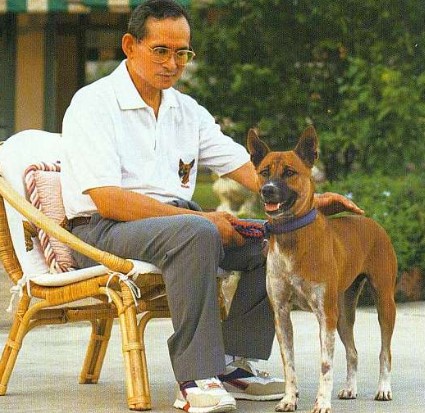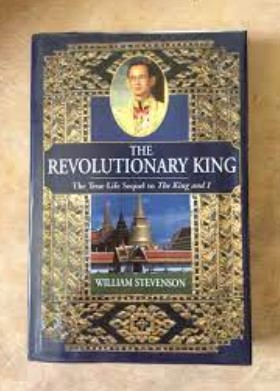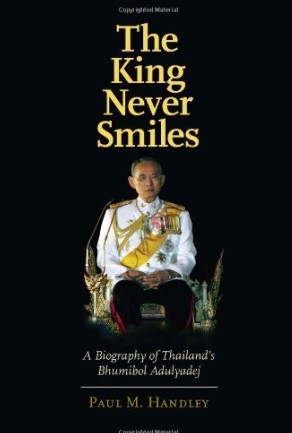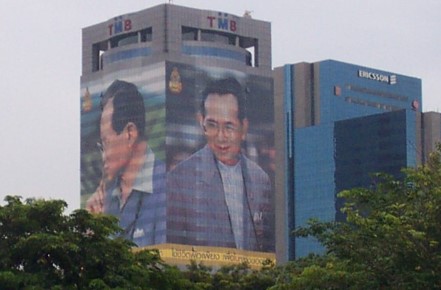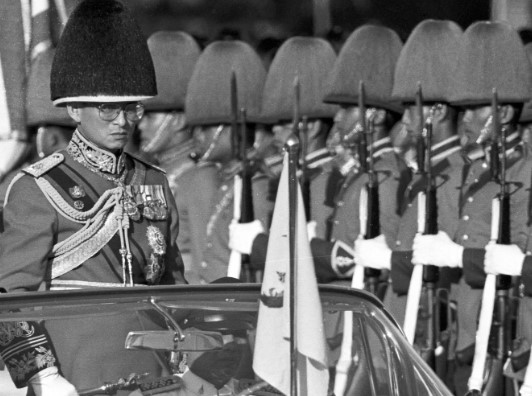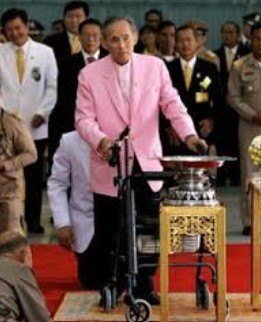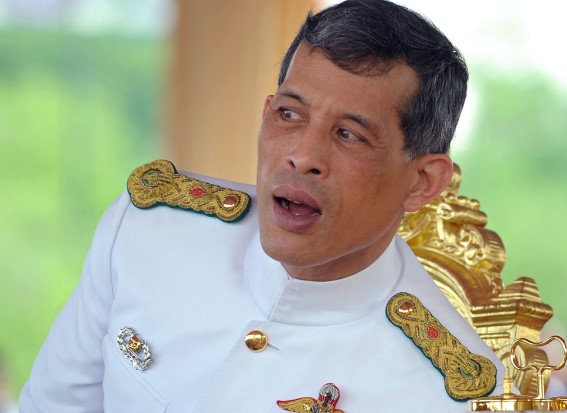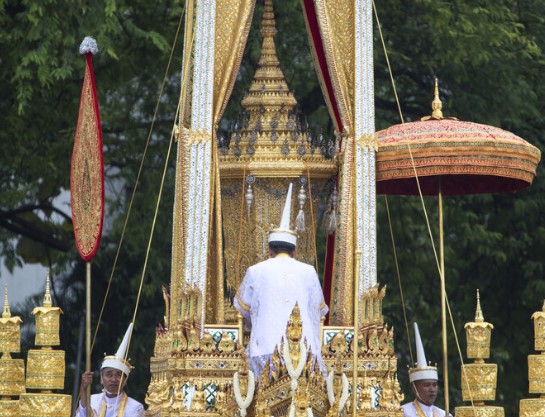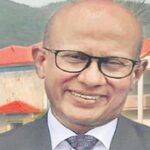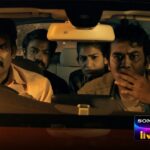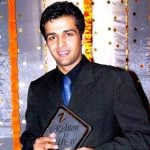Bhumibol Adulyadej Age, Death, Wife, Children, Family, Biography
Quick Info→
Father: Mahidol Adulyadej
Wife: Sirikit Kitiyakara
Age: 88 Year
| Bio/Wiki | |
|---|---|
| Birth name | Baby Songkla |
| Full name | Phrabat Somdet Phra Paraminthara Maha Bhumibol Adulyadej |
| Other name | Mahitalathibet Ramathibodi Chakri Naribodin Sayamintharathirat Boromanatbophit |
| Nickname(s) | King Bhumibol the Great, the King, Lord Upon our Heads, Chao Chiwit (Lord of Life) |
| Posthumous name | Phrabat Somdet Phra Boromchanakadhipeshra Maha Bhumibol Adulyadej Maharat Boromanatbophit |
| Profession | Monarch |
| Famous for | Being the ninth king of the Chakkri dynasty in Thailand (1950–2016) |
| Physical Stats & More | |
| Height (approx.) | 5' 7" (170 cm) |
| Eye Colour | Black |
| Hair Colour | Salt and Pepper |
| King of Thailand | |
| Dynasty | Chakkri |
| Titles | • His Highness Prince Bhumibol Adulyadej (5 December 1927-September 1929) • His Royal Highness Prince Bhumibol Adulyadej (September 1929-10 July 1935) • His Royal Highness Prince Bhumibol Adulyadej, the Prince Brother (10 July 1935-9 June 1946) • His Majesty The King (9 June 1946-13 October 2016) |
| Military | |
| Allegiance | Kingdom of Thailand |
| Service/branch | • Royal Thai Army • Royal Thai Navy • Royal Thai Air Force |
| Rank | • Field Marshal • Admiral of the Fleet • Marshal of the Air |
| Years of service | 1946–2016 |
| Commands held | Royal Thai Armed Forces |
| Personal Life | |
| Date of Birth | 5 December 1927 (Monday) |
| Birthplace | Cambridge, Massachusetts, U.S. |
| Date of Death | 13 October 2016 |
| Place of Death | Siriraj Hospital, Bangkok, Thailand |
| Age (at the time of death) | 88 Years |
| Death Cause | Kidney Failure [1]The New York Times |
| Zodiac sign | Sagittarius |
| Signature |  |
| Nationality | Thai |
| Hometown | Bangkok, Thailand |
| School | • Mater Dei Institute of Education, Drumcondra, Dublin City, Ireland • Gymnase Classique Cantonal of Lausanne, Switzerland |
| College/University | University of Lausanne, Switzerland |
| Educational Qualification(s) | • Baccalauréat des lettres (high-school diploma with a major in French literature, Latin, and Greek) from Gymnase Classique Cantonal of Lausanne, Switzerland • Science at the University of Lausanne, Switzerland |
| Religion | Theravada Buddhism [2]The Times of India |
| Food Habit | Non-vegetarian [3]Cordon Bleu |
| Hobbies | Painting, Sailing, Playing Saxophone, Listening to Jazz Music, Photography, Reading, Writing |
| Controversy | Enforcement of Strict Laws During his reign, he enforced strict laws called lèse-majesté that protected him. These laws were among the toughest in the world. If someone criticized him, they could go to jail for three to fifteen years. [4]BBC |
| Relationships & More | |
| Marital Status (at the time of death) | Married |
| Marriage Date | 28 April 1950 |
| Family | |
| Wife/Spouse | Sirikit Kitiyakara (m. 1950) (Queen of Thailand from 1950 to 2016 as the wife of King Bhumibol (Rama IX))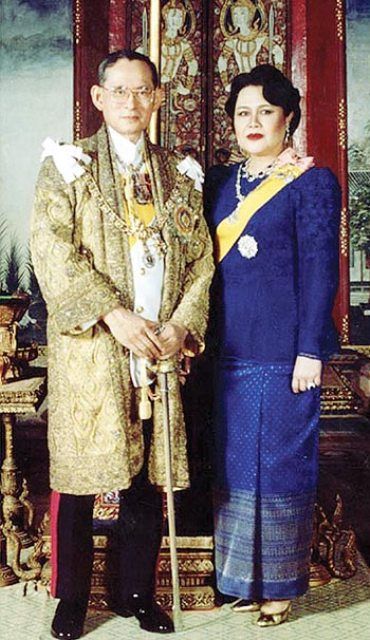 |
| Children | Son- Vajiralongkorn (Crown Prince of Thailand)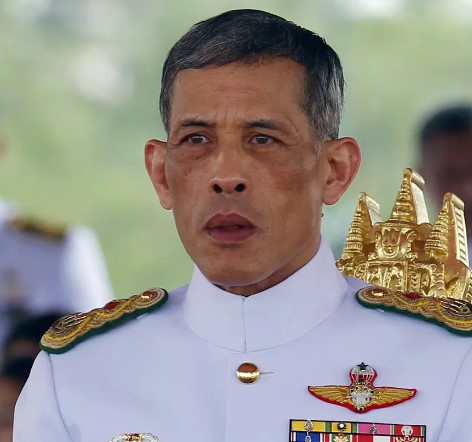 Daughters- 3 • Sirindhorn (Princess of Thailand) 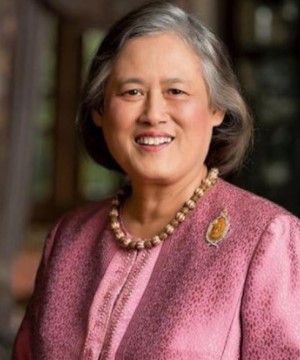 • Chulabhorn Walailak (Princess of Thailand) 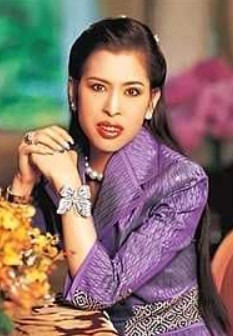 • Ubolratana Rajakanya (film actress) 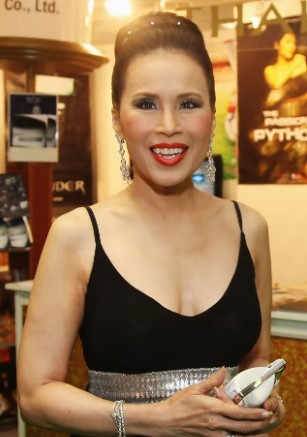 |
| Parents | Father- Mahidol Adulyadej (Prince of Songkla)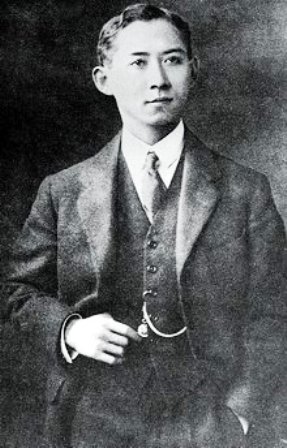 Mother- Srinagarindra (The Princess Mother) 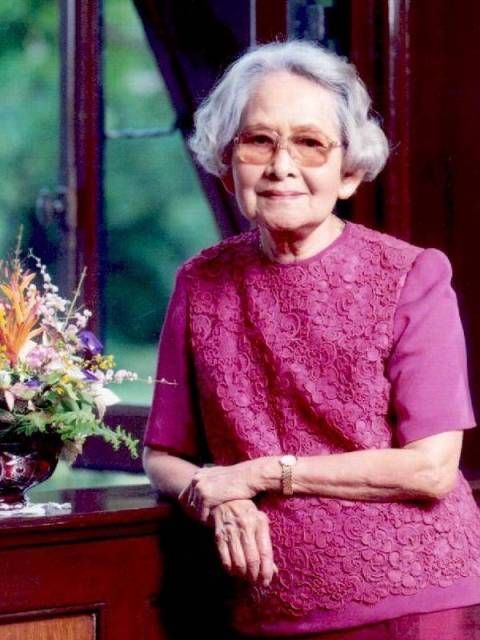 |
| Siblings | Brother- Ananda Mahidol (Former King of Thailand)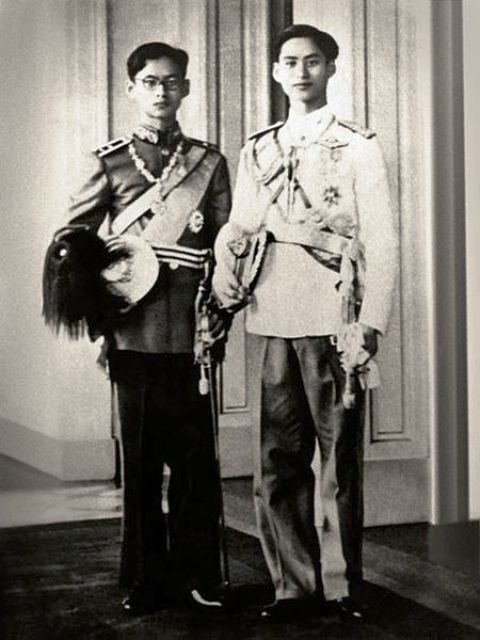 Sister- Galyani Vadhana 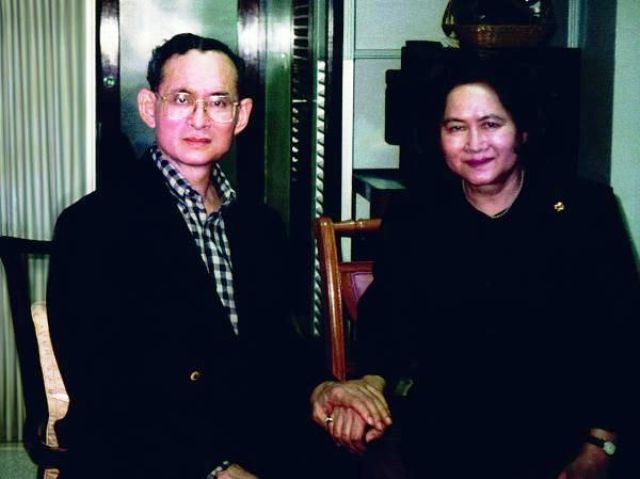 |
| Favourites | |
| Music | Jazz |
| Sport | Sailing |
| Money Factor | |
| Net Worth (approx.) | In April 2011, his net worth was estimated at $30 billion. [5]Forbes |
Some Lesser Known Facts About Bhumibol Adulyadej
- The name on his U. S. birth certificate was Baby Songkla as his parents had to consult his uncle King Rama VII (Prajadhipok), who was the then head of the House of Chakri, to suggest a name for him.
- Bhumibol was the only monarch to be born in the United States as at the time of his birth, his father was enrolled in a public health program at Harvard University.
- In 1928, Bhumibol came to Thailand from the United States.
- In September 1929, his father died of kidney failure when Bhumibol was less than 2 years old.
- When he was nine years old, his elder brother became king; however, they stayed in Switzerland, and a council took care of things back in Thailand.
- He attended a school in Bangkok for a while, but then his mother took him and his siblings to Switzerland in 1933.
- He became a Jazz enthusiast in 1942 and started playing saxophone when he was fourteen.
- Apart from saxophone, he liked playing other instruments like the saxophone, clarinet, trumpet, guitar, and piano.
- He learned music when he was young. At first, he only played classical music, but then he started playing jazz because he liked to make up his tunes.
- When he was 18, he started writing his music. He played with famous jazz musicians like Benny Goodman and Lionel Hampton.
- He wrote 49 songs in his life, some were jazz and some were other types of music.
- In his youth, Bhumibol had a great interest in firearms. He kept a carbine, a Sten gun, and two automatic pistols in his bedroom, and he and his elder brother, King Ananda Mahidol, often used the palace gardens for target practice.
- He had a great interest in photography and was filled with enthusiasm when he was given a camera in 1934.
- They visited Thailand for a short time in 1938. After the end of the Second World War, he returned to Thailand along with his family.
- He studied science at the University of Lausanne but changed his major to law and politics when he came back to Thailand after World War II.
- On 9 June 1946, he ascended the throne after his elder brother, Ananda Mahidol, died of a mysterious gunshot wound.
- He went back to Switzerland before the official mourning period was over. His uncle was in charge until Bhumibol was ready to be king.
- In the initial days of his tenure as the King of Thailand, he had no real political powers and was merely a ceremonial king.
- His famous songs were Candlelight Blues, Love at Sundown, and Falling Rain, which he wrote in 1946.
- On 4 October 1948, he lost vision in his right eye when he met an accident while driving a Fiat Topolino on the Geneva-Lausanne road.
- He was the 9th monarch of Thailand and was considered as world’s longest-serving head of state (from 9 June 1946 to 13 October 2016).
- In 1950, he met his future wife Mom Rajawongse Sirikit Kitiyakara in Paris who was the daughter of a Thai Ambassador to France.
- His coronation took place at the Royal Palace in Bangkok on 5 May 1950, when he became the Crowned King of Thailand.
- Some of his music is kept at the Library of Congress. Bhumibol learned music while he was in Switzerland, and when he came back to Thailand, he started a band called Lay Kram.
- He was also a radio enthusiast and had a radio station at his palace where he played with his band. He used to play music at universities and wrote songs for some of them.
- Bhumibol played a key role in 1992, in the transition of Thailand to a democratic system.
- He liked designing boats. He made different kinds of sailboats and got patents for some inventions like the machine that cleans water.
- Bhumibol was the only monarch of Thailand who held a patent. In 1993, he obtained a patent for a wastewater aerator named ‘Chai Pattana.’
- In 1999, he was granted a patent for his ‘sandwich’ rainmaking technique and the ‘supersandwich’ patent in 2003.
- During his reign as the King of Thailand, he was served by 30 Prime Ministers.
- He liked painting, composing songs, and doing photography in his leisure time.
- He was an author and translator who wrote the book Phra Mahachanok, based on a traditional Jataka story of Buddhist scripture. He also wrote the book The Story of Thong Daeng, which was about his dog, Thong Daeng.
- In 2005, during his birthday speech, Bhumibol said that people could criticize him. He said that it was okay to point out when he made mistakes because it helped him improve.
- He believed that kings could make mistakes because they were human, like everyone else. However, after this statement, he faced many criticisms, and the number of people being prosecuted for criticizing the king increased.
- Two English-language books provide extensive detail about Bhumibol’s life, especially his early years and his entire reign. The Revolutionary King (2001) by William Stevenson and The King Never Smiles (2006) by Paul M. Handley are these two books.
- The biography, “The Revolutionary King,” was written by William Stevenson in 2001. Stevenson had access to the royal court and family. Some people said Bhumibol suggested the idea for the book. Bhumibol supported the book, but it was not officially allowed in Thailand. The Bureau of the Royal Household warned the media not to talk about it.
- In 2006, the government of Thailand did not allow the book “The King Never Smiles” to be sold in the country and blocked its page on the Yale University Press website. The Thai National Police Chief stated that the book might harm the country’s safety and people’s morality. The book talked about Bhumibol’s role in Thai politics and why people liked him.
- People criticized the book “The Revolutionary King” for sharing wrong facts and not showing respect to Bhumibol (it called him by his nickname “Lek”), and suggesting a strange theory about the death of King Ananda. Stevenson said Bhumibol warned him that the book could be dangerous for both of them.
- Bhumibol was a creative person who excelled in music, art, and invention.
- In 2005-2006, there was another political crisis occurred in Thailand. The opposition parties asked the king to appoint a new prime minister before the elections. However, the king refused and called it undemocratic.
References/Sources:

